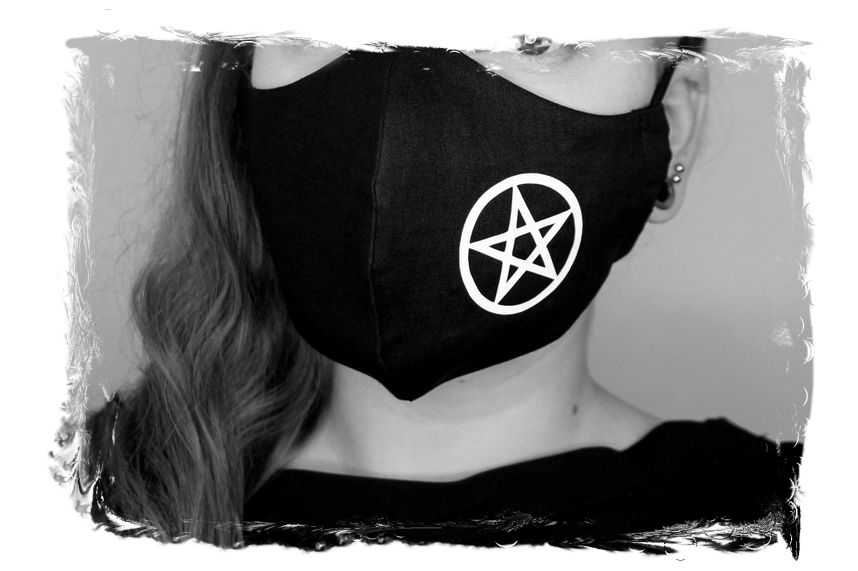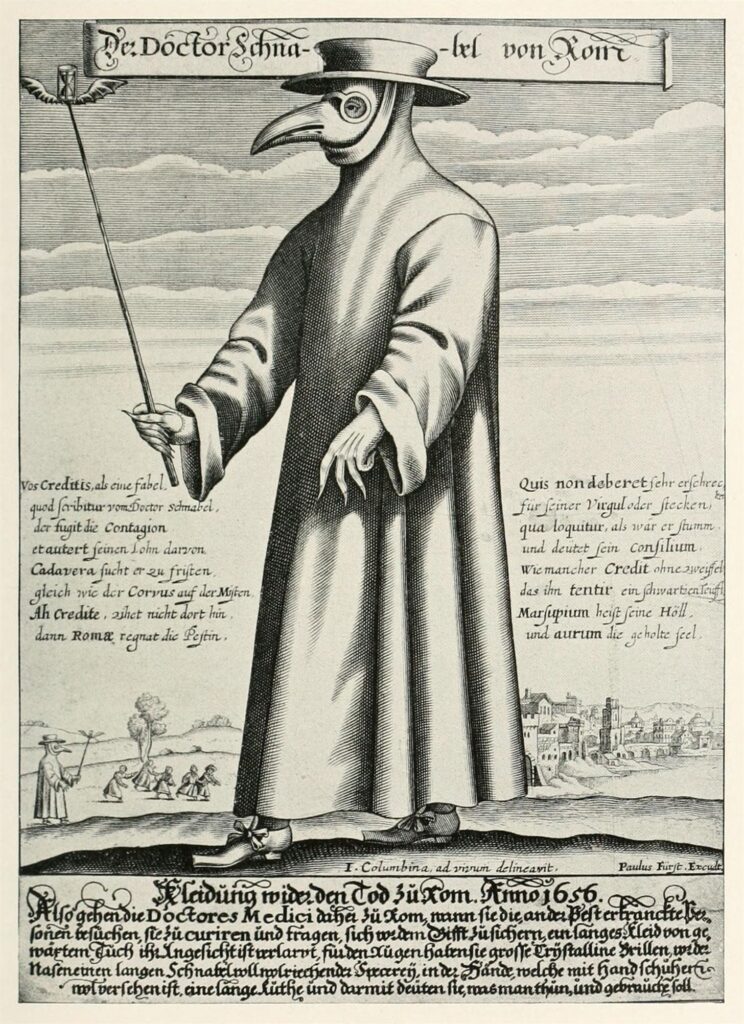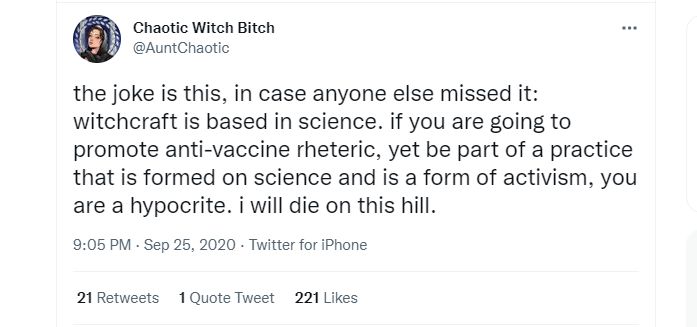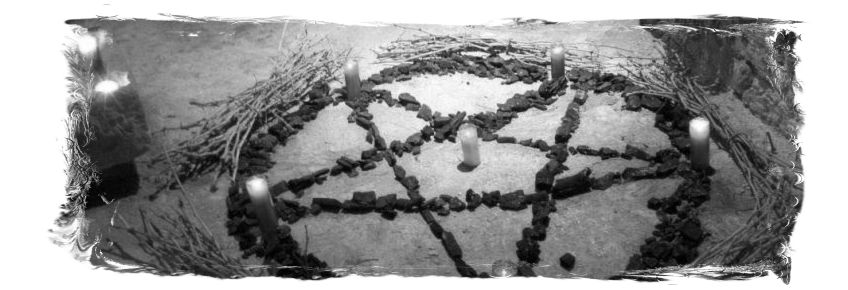The global pandemic has resulted in many unforeseen consequences, some of which we may not fully understand for decades. But perhaps one of the most interesting has been the increased interest in the occult.
Shortly after the 2020 pandemic lockdowns, some noticed that interest in occultism had begun to boom. Social media platforms were seeing a noticeable increase in mentions of “astrology” and esoteric terminology. CNN reported that “psychics and astrologers have seen their customer bases increased exponentially during the pandemic.” In fact, many psychics described 2020 as “a year like no other” saying that “everybody wants to know what’s coming.” Which is one reason why Kemi Marie who runs a spiritual wisdom account on Twitter and increased her following from 50,000 to 300,000 over the course of the pandemic.
Along with this emerged an exponential growth in witchcraft and Wicca. For example, this writer admits that “The Pandemic Turned Me Into a Witch.” Apparently, she found renewed solace in doing “spellwork” for sick friends and for the speedy development of a vaccine. In fact, during quarantine, many “virtual covens” formed. Like the one developed by Sére Skuld who “proposed to make a hyper-sigil – the union of several magic symbols” to provide her circle of practitioners protection against coronavirus.

This cauldron of occultism reached its boiling point with the phenomenal growth of #WitchTok during the pandemic. Since TikTok’s inception in 2017, videos labelled #WitchTok have acquired over 18.7 billion views. As a result, celebrity Wiccans and pagans have gathered large online followings. Like Madam Adam, a witch and Tarot card reader who boasts over 1.5 million followers, many acquired during the COVID pandemic, and Kiley Mann, a Jewish folk witch who offers tutorials on creating witch’s wands and talismans for spirit work. #WitchTok has now become a go-to source for pagans to learn about spells of happiness and healing, manifestations, protection potions, and even budget witchcraft candles.
References to and belief in ghosts has also increased during the pandemic.
…mentions of ghosts increased by 83% in March and April (2020) compared to January and February, totalling 108.8k mentions all together. Consumer Research found belief around ghosts seems to be getting stronger. There were 32k people stating they believed in ghosts on social media in March and April, up 39% compared to January and February.
As if that weren’t enough, COVID-19 pandemic lockdowns even led to a spike in calls for exorcisms. As Fr. Gian Matter Roggio, an Italian Catholic priest,
“People have fallen into poverty, they found themselves suffering from anxiety and depression. They feel that their lives are no longer in their own hands but in the hands of a malign force. It’s a big crisis.”
Though this increased interest in the occult may be troubling to some, it is not unusual. This isn’t the first time that people have turned to the supernatural and esotericism during times of global crises and upheaval. For instance, this professor of history notes that

During the previous millennium, the biggest boom in the practice of magic coincided with the Black Death in the mid-14th century.
He labels this “plague magic” and suggests even us moderns still resort to it.
“In times of plague and trauma, we moderns seek to protect ourselves with prayers, charms, sigils and spells as much as any medieval peasant. That a surgical mask is hygienic doesn’t make it any less of a magical symbol.”
Chris French, professor emeritus in the Department of Psychology at Goldsmiths, University of London and head of the Anomalistic Psychology Research Unit, said,
“There’s a lot of evidence to suggest that … all forms of magical thinking tend to increase at times of stress and uncertainty. It has been an incredibly stressful time for so many reasons. You can look at evidence on the sociological level that, in times of great uncertainty, say just preceding the second World War, there was a rise in interest in occult practices. If you look down at the individual level … you find that if you put people into conditions where they don’t feel in control — I think that’s probably the key to this — then again you get this increase in magical thinking, including paranormal beliefs.” (Bold mine)
Feeling out of control and the need to regain some spiritual / emotional equilibrium or self-empowerment appears to be a significant element in the appeal of occultism during the pandemic. For example, this news outlet notes how “uncertainty” has evoked this “new fascination with astrology and the occult.”
The link between spirituality and uncertainty is as old as humanity itself. People look to spiritualism in times of turmoil, said James Alcock, a professor of psychology at York University who studies parapsychological beliefs. That’s why interest in the occult was already increasing before the pandemic, with the chaotic political climate in the US and existential issues like climate change haunting the global consciousness, he said.”This anxiety cries out for some kind of answer about the future, and [the occult] provides an avenue where people can get some kind of answer about the future,” Alcock said.
From the perspective of orthodox historic Christianity, this rise in alternative religions and paganism could be a source of serious concern. After all, it dovetails with another disturbing trend — the rise of the Nones.
This demographic (comprised mostly of dis-affected believers and Millennials and Gen Zers) have abandoned previous religious ties in favor of “none.” But rather than reject all religious affiliations and beliefs, the Nones have simply migrated to alternate forms of religion.
The pandemic may not have initiated a global revival of historic Christianity, but it did reveal that we are an incurably spiritual people.
In her essay “The Rise of Progressive Occultism,” Tara Isabella Burton concludes that “…progressive millennials have appropriated the rhetoric, imagery, and rituals of what was once called the ‘New Age’—from astrology to witchcraft—as both a political and spiritual statement of identity.” Burton writes,
Progressive occultism—the language of witches and demons, of spells and sage, of cleansing and bad energy, of star and signs—has become the de facto religion of millennial progressives: the metaphysical symbol set threaded through the worldly ethos of modern social justice activism. Its rise parallels the rise of the religious ‘nones,’ and with them a model of spiritual and religious practice that’s at once intuitional and atomized. Twenty-three percent of Americans call themselves religiously unaffiliated, a number that spikes to 36 percent among millennials (Trump’s white evangelical base, by contrast, only comprises about 17 percent of Americans). But tellingly, few among this demographic identify as atheists or agnostics. A full 72 percent of “nones” say they believe in God, or at least some kind of nebulously defined Higher Power; 17 percent say they believe in the Judeo-Christian God of the Bible.
While the embrace of witchcraft and New Age thinking among the Nones is indeed troubling, the fact that “few among this demographic identify as atheists or agnostics,” is significant. Or as Burton puts it, “A full 72 percent of ‘nones’ say they believe in God, or at least some kind of nebulously defined Higher Power; 17 percent say they believe in the Judeo-Christian God of the Bible.”
The pandemic may not have initiated a global revival of historic Christianity, but it did reveal that we are an incurably spiritual people.
In fact, much evidence has emerged confirming that people generally become more, not less, religious during times of crises and upheaval. This theologian writes,
during the COVID-19 pandemic, researchers found that online searches for the word “prayer” soared to their highest level ever in over 90 countries. And a 2020 Pew Research study showed that 24% of U.S. adults stated their faith had become stronger during the pandemic, while only 2 percent said it’s been weakened. (Bold mine)
Across the board, the pandemic has strengthened religious faith. As Pew reports,
Nearly three-in-ten Americans (28%) report stronger personal faith because of the pandemic, and the same share think the religious faith of Americans overall has strengthened, according to the survey of 14 economically developed countries.
But while interest in both traditional religion and alternative spirituality have all seen significant upticks during the pandemic, atheism has not. Recent polls reveal that 4% of American adults say they are atheists when asked about their religious identity. But apparently, believing in no God and no afterlife is not a compelling proposition during a global pandemic. There is no evidence that atheism significantly increases during times of societal crises. On the contrary, it is less developed countries which tend to be the most religious (causing some to conclude that peace and prosperity, rather than crisis, is more conducive to the growth of atheism).
Because atheists place their hope in Man and Science, the pandemic has become a context for demonstrating their humanistic “faith.”
We trust secular humanism, the application of reason and science to the understanding of the universe and the solving of human problems, to get us through times of trouble. Secular humanists have no choice but to rely on and trust each other. We trust that the innate goodness and helping hands of our fellow man will be there in this time of crisis. This gives us comfort and hope.
We have trust that solutions to COVID-19, both in the form of treatments and vaccines, will come from scientists and other professionals. This trust is based on evidence and history.
Perhaps it should come as no surprise that the demographic with the most uniform, monolithic response to COVID-19 has been atheists. In fact, atheists are more likely to get vaccinated than any other single demographic.
While many have taken Christians to task for vaccine hesitancy, pagans appear equally divided on treatment. Like this popular TikTok witch who scolds the vaccine hesitant among her ranks.

Of course, claiming to be part of an “activist” movement while pledging allegiance to Science and Government seems ironic. Nevertheless, other devotees do not embrace such a hard-line stance.
For example, Alex Brady asks Can You Treat Coronavirus With Magic? Depends Which Spiritualist You Ask. He notes,
Famous Instagram witches like Bri Luna (@yungkundalini), who boasts over 30,000 followers, post witchy photos with a COVID-19 bent. (On March 22 she posted a picture of herself standing over the sink in a sweater and underwear, with the caption “Wash your hands.”) Others, like witch and tarot reader Emma Westbrook, whose Zoom tarot class I’ve been taking, offer sound baths for healing on Instagram Live on @weaving.witch. Famous astrologers like Rebecca Gordon—founder of the Rebecca Gordon Astrology school—offer free virtual webinars like one in mid-April called “Social Distancing Through the Zodiac.”
While the science behind “Social Distancing Through the Zodiac” is unclear, the message behind “Wash your hands” is not.
The result is an amalgam of pagan approaches to the pandemic. So while these pagan health care providers are pledged to science, these Wiccans have joined with local anti-vaccine activists in hopes “to prevent childhood vaccinations and treat Autism with Witchcraft.” This priestess for the Temple of Hecate calls upon “the great Guardians of the East, South, West, and North” asking them to “‘wipe out this virus, burn it away, and eradicate it from this Earth!,'” while also believing that “we need to wear a mask and gloves to honor the society we live in” and that “witches… do believe that their magic can cure people of the virus.”
In fact, in doing research for this article I was connected with a Wiccan practitioner who fielded questions. She absolutely disavowed vaccination under any circumstances, saying “it is a chemical being injected into what I consider my sacred being which belongs to no one but me. It was gifted to me by the Lord/Lady for my time here on earth, it is not owned by the Govt, the medical or scientific communities, and that is not up for discussion.” In fact, having had COVID, she outlined a detailed list of herbal and alchemical treatments, concluding that “every person has his/her own relationship with his/her God and that shall not be infringed.”
While many have taken Christians to task for vaccine hesitancy, pagans appear equally divided on treatment.
So while paganism has increased during the pandemic, a singularity of approach to the virus has not. This could have to do with the de-centralized, individualistic nature of many alternative religions. There is rarely a formal institutional structure that unites all practitioners. So while there is a Satanic Bible and a Church of Satan, there is no Pagan equivalent.
Interestingly, whereas traditional occultists and esotericists operated on the fringes of Government, science, and medicine, todays occultists seem more beholden to them. Whether this support of the Government, acquiescence to Science and traditional medicine, indicates a shift in contemporary paganism is unclear.
Either way, the pandemic has clearly revealed one thing — Atheism is not the default for human beings. It will always be an outlier. In times of crisis or instability, people do not turn to nothing. (Of course, one could argue that atheism simply swaps a Supreme Being for Science and Man.) While the increase of interest in the occult signals the waning of traditional religion and the prevalence of alternative worldviews, it is nevertheless a reminder that humans are spiritual beings wedded deeply with Nature and invisible forces that imbue it. Yes, turning to Nature, goddesses, and magical amulets is misguided and can lead to great spiritual deception. Nevertheless, acknowledging forces beyond ourselves, something supernatural, Someone more wise and powerful than us, is intrinsically human.
So while the pandemic may not have initiated a global revival of historic Christianity, it did reveal that we are an incurably spiritual people.















Mike, This a fascinating study on a underreported phenomenon, but it makes total sense. I really think you would be interested in Jonathan Pageau’s The Symbolic World YouTube channel. He is a Orthodox Christian icon carver who explores symbolism in many different contexts, and has had conversations with occultists on his channel. He also has a whole website devoted to exploring Christian symbolism. Your art and literary interests might dovetail with his: ttps://thesymbolicworld.com/
Thanks for the link. I’ve subscribed to his YouTube page and have really enjoyed what I’ve seen so far.